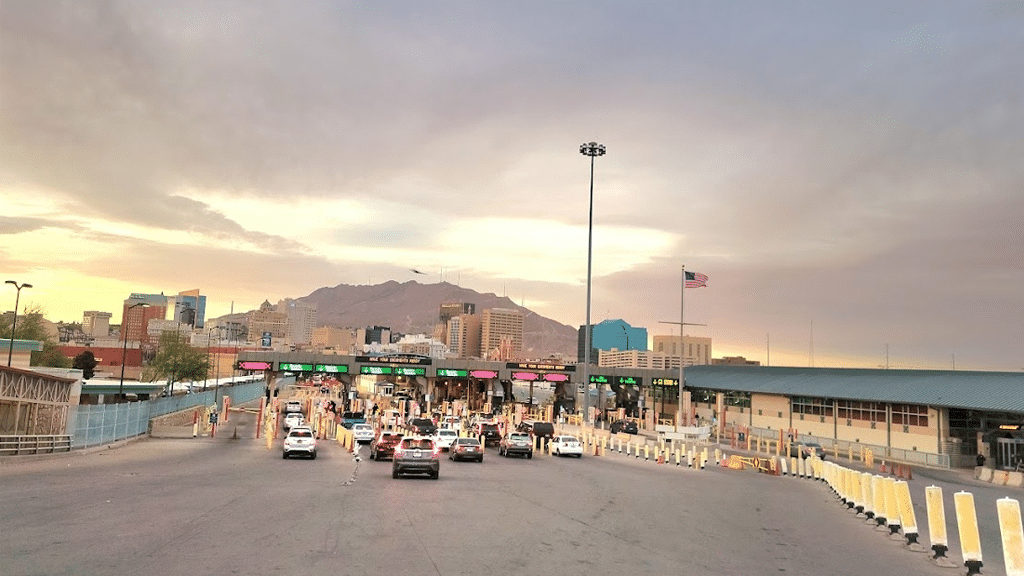Drivers who are enrolled in the Secure Electronic Network for Travelers Rapid Inspection (SENTRI) program will have a third option for entering the U.S. from Mexico in El Paso and Juarez area. U.S. and Mexican officials will initiate SENTRI service at the Paso Del Norte (PDN) international crossing at 8a.m., Dec. 1.
U.S. Customs and Border Protection collaborated for months with their Mexican counterparts to expand the SENTRI service to the downtown crossing. The easternmost lane of the international bridge is now segregated from regular traffic. At least one and as many as four of the easternmost inspection booths at the PDN facility will be designated for SENTRI use depending upon demand. Electronic signage located above the inspection booths will direct SENTRI users.
“The need for additional SENTRI service has been demonstrated by the growing popularity of this trusted traveler program, especially in the downtown area,” said CBP El Paso Director of Field Operations Hector Mancha. “It is important to note that enrollment in SENTRI does not offer a free pass to the U.S. CBP officers may still conduct exams to verify that SENTRI users are not violating any laws upon their arrival.”
During fiscal year 2021, just over one million vehicles were processed at the Stanton international crossing SENTRI lane. During fiscal year 2023 the number exceeded 1.5 million. Enrollments in trusted traveler programs in the El Paso area are also increasing. In fiscal year 2021 there were approximately 82,000 people enrolled in the program. In fiscal year 2023, the number has now exceeded 100,000.
The infrastructure constraints of the Stanton SENTRI lanes and the proximity of the Paso Del Norte crossing supported the expansion of SENTRI to further CBP’s mission priorities of facilitating lawful travel and continued growth in trusted traveler programs.
Commonly known as the Dedicated Commuter Lane (DCL) in the EL Paso area, the popular DCL lanes were first introduced at the Stanton international crossing in 1999. DCL service was then established at the Ysleta port of entry several years later. It is also available for pedestrian users of the PDN crossing.
